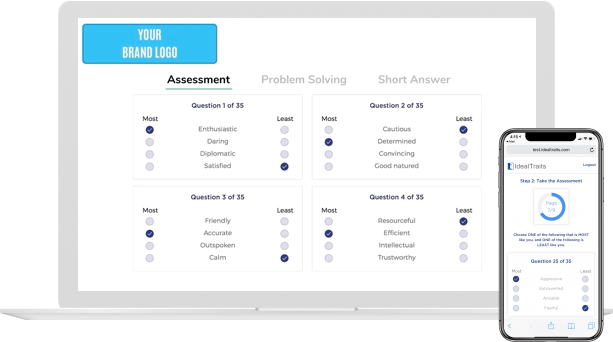
Selling an
Insurance Agency.
You’ve successfully owned an insurance agency for a while now, but perhaps you’re thinking it’s time to sell it so you can retire or pursue other interests. Fortunately, selling an insurance agency doesn’t have to be difficult, especially if you’re selling to a current employee or a family member. Read on for a deeper dive into selling an agency, how taxes come into play and where to start.
Here’s what you’ll learn.
Taxes & selling your independent insurance agency
The basics of selling an insurance agency
Factors in valuing your agency
How can the Big “I” help with selling an agency?

Taxes & selling your independent insurance agency.
It’s important to understand how taxes factor in when selling your insurance agency. It’s not necessarily what you sell it for as much as what you get to keep after paying taxes. There are two ways to sell your agency, depending on whether it’s considered a stock sale or an asset sale.
- A stock sale transfers the ownership of your corporation, including all of its assets and liabilities, which can put the buyer at risk of inheriting known — or unknown — past liabilities.
- Most insurance agency sales are made as asset sales, which involve transferring the ownership of certain assets of your agency — its book of business, licenses, equipment, inventory, client lists — to the buyer.
An asset sale of an insurance agency benefits the buyer from a tax standpoint. That’s because it allows the buyer to get tax deductions for depreciation or by deducting the interest on the debt over time. And asset sales allow “goodwill,” which are intangible assets such as customer loyalty and brand reputation and can be deducted over a 15-year period (for nonpublic companies).
At the same time, a stock sale might be attractive to a seller who wants to receive capital gains treatment for the sale of their stock. This may be at a more favorable tax rate than an asset sale.
An independent insurance agency may be sold as an installment sale. This typically occurs over a three, four or five-year period and sometimes longer if it is sold to a family member. With an installment sale, the buyer doesn’t have to pay or borrow a lump-sum amount up front. The seller usually stays involved with the agency for a year or several years to help with the transition. The sale price also can be based on the customers who ultimately stay with the agency.
The basics of selling an insurance agency.
If you’re not sure where to start, selling your insurance agency may seem like an overwhelming process. Following a step-by-step process can really help:
Realistically, it can take several years to put together an adequate plan to sell your insurance agency. Don’t just sell it on a whim one day. You’ll have many considerations that involve employees and (hopefully) many clients. All of these elements need to be factored in before you’re ready.
Selling to a family member or current employee can be an advantage. You have more insider knowledge about your buyer’s traits. You’re in a better position to assess whether they’ll run your agency in a way that would make you proud and continue your legacy. Once you start confidential discussions, make sure a non-disclosure agreement (NDA) is signed by all parties.
To help you with the transaction, you can get help from an agency merger-and-acquisition consultant. Ideally, you’ll hire this professional when you’re still in the planning phase. They can help you determine the ideal time to sell and other aspects you may not have considered.
Of course, you must settle on the value of your insurance agency before you can sell it to your buyer. You’ll need to come up with a dollar figure that considers your book of business and customers, not just your physical agency building and your annual revenue stream.
Negotiate sale terms with your buyer to meet your objectives and timeframe. Consider asking for the full asking price upfront, which may work if a larger agency is buying. If not, an installment plan could be suitable. For publicly traded buyers, a stock swap may allow you to receive some or all proceeds in stock.
Don’t rely on a handshake, even when selling to family. Get a letter of intent signed and reviewed by a CPA and an attorney, along with a purchase agreement.
Agency acquisitions typically involve asset sales—client lists, equipment, goodwill—to mitigate liability from lawsuits over past errors. Buyers must recognize E&O exposure and existing liabilities. Coordination of the agency’s E&O insurance is crucial, depending on whether it’s an asset or stock sale. In stock sales, buyers should require “E&O tail coverage” to address any pre-sale liability claims against the agency.

Don’t Leave Your Future to Chance.

Factors in valuing your agency.
Accurately determining your agency’s value while ensuring you earn the maximum profit possible is the best approach to selling your insurance agency. And, staff retention and client services after the sale are important, too.
The best way to sell your agency is to develop an in-depth plan with the help of a professional. At the outset, you’ll want to accurately value your agency so you can maximize your profits. Consider these factors:
Buyers want an insurance agency with a good reputation and established relationships with dependable, top-performing carriers that will generate renewals and new business.
Buyers aren’t looking just at your agency’s current revenue. They’re looking for how much you bring in annually, profit-wise. The more profitable your agency, the more value it has to a buyer.
The smartest buyers look for insurance agencies that retain 90% to 95% of clients year over year. If your agency falls into this sweet spot, you can proudly increase the sale value.
If your insurance agency has grown consistently by 5% to 10% or more each year throughout its lifespan, it’ll be much more attractive to a buyer. The higher the rate of your insurance agency’s growth over time, the higher the value it has in a sale.

What is the Big “I”?
The Big “I” is a national trade federation made up of more than 50 independent state associations and the national association. Its mission is to support independent agents and brokers through membership benefits such as educational tools, informative publications, networking, and more. Through the Big “I,” owners, sellers and buyers of insurance agencies are equipped to thrive.
How can the Big “I” help with selling an agency?
The Big “I” is an extremely helpful resource when the time comes to sell your agency. With many tools to help you learn about the insurance industry and current market trends, you can get your questions answered every step of the way. The Big “I” is there to help you deal with any issues that may arise when you’re selling your agency.
You may want to sell your agency to a relative or employee, but the buyer may not have the funds necessary to close the deal. While agency owners sometimes take back a note for a portion of the sale, you’ll still want to receive an adequate amount of funds upfront. If the buyer needs financing, the Big “I” has a relationship with InsurBanc, which specializes in agency financing and has experts who can assist either party in a sale.


sign up for a Big “I” membership in your state.
Signing up for a Big “I” membership in your state is easy. Just fill out the online form to get started. Member dues vary by state, firm size and revenue. If you have questions, the Big “I” is standing by to answer them and assist you in every way possible.













